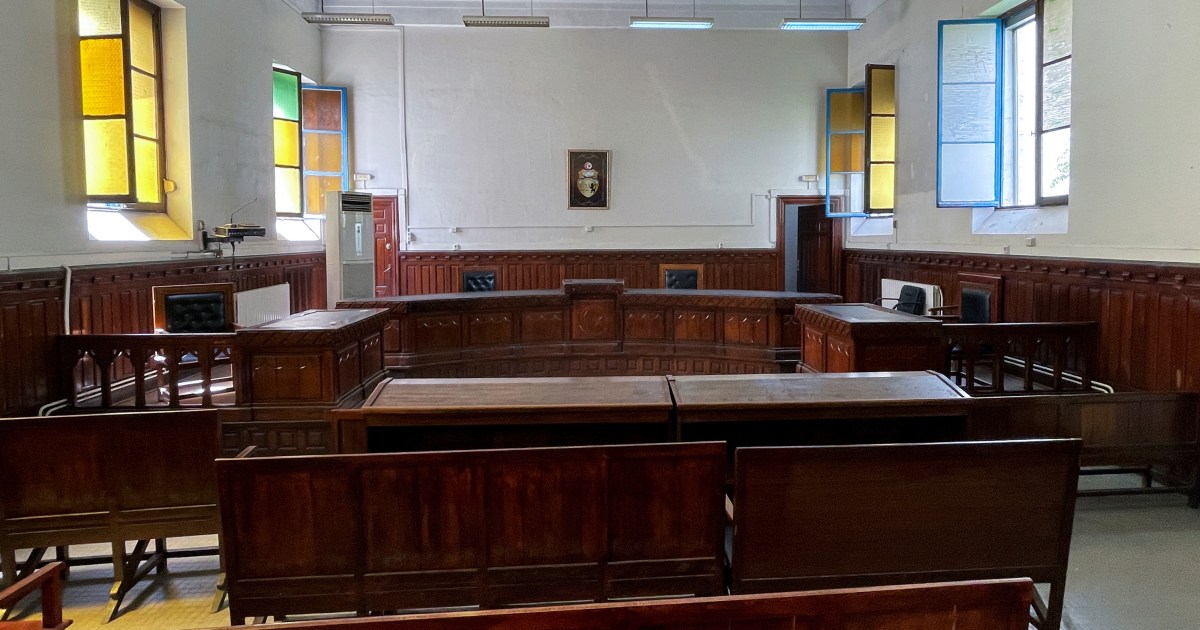The Coordination of Judicial Structures in Tunisia announced the extension of the suspension of the work of judges in all courts and judicial institutions for a new week, starting tomorrow, Monday, while the Tunisian authorities investigated a media reporter who reported that the army had been called to intervene against the Tunisian General Labor Union (the largest trade union in the country). After calling for a strike in the public sector next Thursday.
In a statement published on Saturday, the Coordination - which includes 6 unions representing Tunisian judges, including the Judges Association and the Judges Syndicate - said that the decision comes due to the Presidency of the Republic's failure to dismiss 57 judges, and its failure to interact with the judges' movements.
The coordination added that it will hold a plenary session at the end of next week;
To take appropriate decisions regarding the continuation of the movement.
Representatives of the Tunisian judges' unions had threatened to extend the strike and escalate their protest movements, unless Tunisian President Kais Saied reversed the decision to dismiss dozens of judges.
On the other hand, Saeed called for deducting the days of the strike from the judges' salaries and for taking other measures against them, saying that the state's public utility cannot be stopped.
International and Tunisian organizations criticized the decision to exempt the judges, saying that it undermines the independence of the judiciary in Tunisia, while the Tunisian president considers it a necessary step to reform the sector.
On Saturday, the Secretary-General of the Tunisian General Labor Union, Noureddine Taboubi, announced the union's support for the independence of the judiciary and its rejection of any attempt to control it.
Taboubi also called for the Tunisian security services not to be involved in political battles, stressing that Tunisian national security is a red line.
second meeting
Meanwhile, the Economic and Social Affairs Committee of the advisory body tasked by President Said with drafting a new constitution for the country held its second meeting on Saturday, amid doubts that a draft of the constitution will be reached by June 20.
The committee is discussing the economic and social texts that will be included in the constitution. The head of the advisory body, Sadiq Belaid, said that the rest of the committees will start their work after the end of the work of the current committee.
The Tunisian president decided to draft a new constitution and organize a referendum on it on July 25, then hold legislative elections next December.
Said faces growing opposition and calls to boycott the referendum, and his opponents accuse him of seeking to establish a dictatorial regime.
An investigation with a media person
On the other hand, Al-Jazeera correspondent in Tunisia said that the journalist Saleh Attia was transferred on Saturday to the Anti-Cybercrime Squad of the National Guard in the capital, Tunis.
And Reuters news agency quoted a witness that the security forces arrested Attia in a cafe in a suburb of the capital.
And the State General Agency for the Administration of Military Judiciary had said that the Military Prosecution had conducted an investigation into statements made by journalist Saleh Attia during an analytical intervention with Al-Jazeera, in which he said that President Kais Saied had formally asked the army to intervene against the Tunisian General Labor Union, by closing its headquarters and placing Some leaders are under military house arrest.
The agency said that the investigation includes accusations of harming the dignity and reputation of the national army, and offending others through public communications networks.
The Secretary-General of the Labor Union, Noureddine Taboubi, had denied the authenticity of the news, as well as what was reported about his contact with leaders of the Tunisian army and leaders from the Ministry of the Interior.

